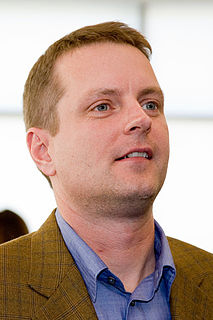A Quote by Ben Schott
The web can be a fast trip to the library, giving you immediate access to a government report, or it can filter media for you, which is why I look at around 15- 20 of these sites every day.
Related Quotes
We don't believe in limiting access to our product. We believe that making our ticket sales available on as many sites as possible is good for the studios and good for us. We have on any given day 25,000 show starts - five show times at 5,000 screens. We have 1M seats more or less in our circuit. So I have 25M sales opportunities every single day. Why would I want to limit access?
There are so many websites I read; I look at everything from Slashdot to Ars Technica to the business technology sites, major newspapers like the 'New York Times,' and my local papers where I live, which cover the sports teams I'm involved with. There are about 20 sites we go to regularly, and I do use Twitter and Facebook as well.
I've been in towns where there is no library, or where the library for the high school and the library for the town is one room, and it's smaller than my modest living room here. So you don't have many resources in 1950 or even 1970. This is the year, 2013, every town in America is connected to the web. Every town in America is therefore connected to all kinds of resources at the Library of Congress, at 100,000 websites.
When I was 14, I spent a huge amount of time on the Internet, but not the Internet we know today. It was 1994, so while the World Wide Web existed, it wasn't generally accessible. Prodigy and CompuServe were popular, and AOL was on the rise, but I didn't have access to the web, and no one I knew had access to the web.






































